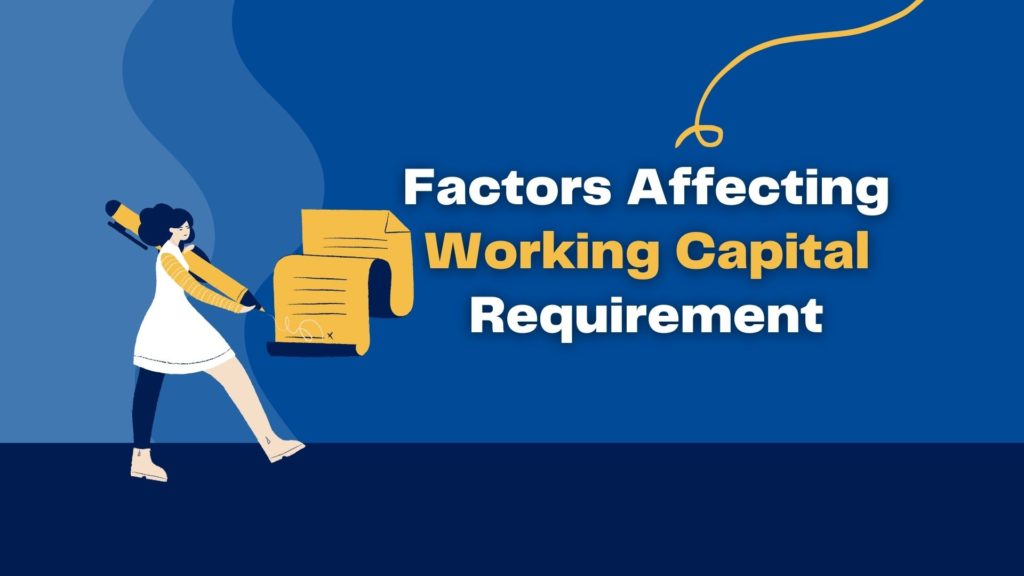10 Factors Affecting Working capital – Scholarszilla

Table of Contents
Factors Affecting Working Capital
Working capital is the capital which is used to carry out the day to day business activities.
A business firm will have to arrange capital for the following
a) For building up inventories
b) For financing receivables
c) For covering day-to-day operating expenses.
The capital invested in these assets is referred to as ‘Working capital’. The concept of working capital is viewed differently by leading authorities. Some authorities consider working capital as equivalent to excess of current assets over current liabilities.
Gerstenbergh defines it as, ‘‘The excess of current assets over current liabilities.’’ This approach refers to ‘Net Working Capital’. Gerstenbergh does not call it working capital. He prefers to call it ‘circulating capital’.
Factors Affecting Working Capital Requirement
1) Nature of business
Firms engaged in manufacturing essential products of daily consumption would need relatively less working capital as there would be constant and sufficient cash inflow in the firm to take care of liabilities. Likewise, public utility concerns have to maintain small working capital because of continuous flow of cash from their customers.
2) Size of business
The size of business also affects the requirement of working capital. A firm with large scale operations will require more working capital.
3) Volume of sales
This is the most important factor affecting size of working capital. The volume of sales and size of working capital are directly related with each other. If volume of sales increases, there is an increase in the amount of working capital and vice a versa.
4) Production cycle
The process of converting raw material into finished goods is called the production cycle. If the period of production cycle is longer, then firm needs more amount of working capital. If the manufacturing cycle is short, it requires less working capital.
5) Business cycle
When there is a boom in the economy, sales will increase. This will lead to an increase in investment in stocks. This requires additional working capital. During recession, sales will decline and hence the need of working capital will also decline.
6) Terms of purchases and sales
If the firm does not get a credit facility for purchases but adopts a liberal credit policy for its sales, then it requires more working capital. On the other hand, if credit terms of purchases are favorable and terms of credit sales are less liberal, then the requirement of cash will be less. Thus working capital requirements will be reduced.
7) Credit control
Credit control includes the factors such as volume of credit sales, the terms of credit sales, the collection policy, etc. If a credit control policy is sound, it is possible for the company to improve its cash flow. If credit policy is liberal, it creates a problem of collection of funds. It can increase the possibility of bad debts. Therefore a firm requires more working capital. The firm making cash sales requires less working capital.
8) Growth and Expansion
The working capital requirement of a firm will increase with the growth of the firm. A growing company needs funds continuously to support large-scale operations.
9) Management ability
The requirement of working capital is reduced if there is proper coordination between production and distribution of goods. A firm stocking on heavy inventory calls for higher level for working capital.
10) External factors
If financial institutions and banks provide funds to the firm as and when required, the need for working capital is reduced.


